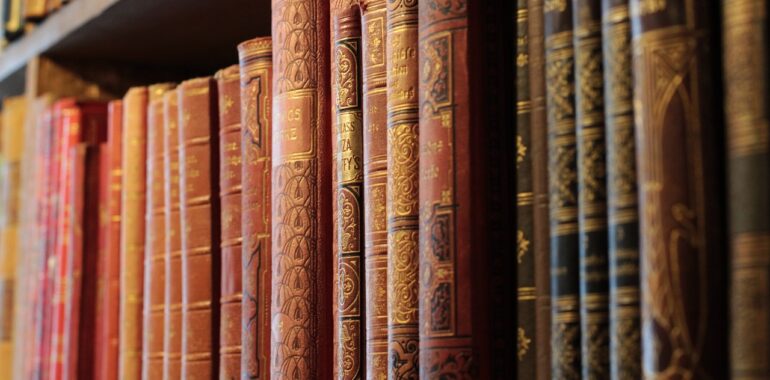Famous Private Libraries

Famous Private Libraries
Since the time of the ancient city of Alexandria, libraries have been considered a social asset, so everyone was free to use this goodness. As we know now, most libraries around the world are owned by organizations or universities, and their operating principle is as follows: one comes freely, borrows a book for a clearly limited period of time, and then returns it.
But the passion and all-encompassing love of literature has led special devotees to build their own book collections. In private libraries one seldom finds cheap or uninteresting titles; there is an atmosphere of exceptional knowledge and bookish wealth.
The libraries on this list are mostly owned by individuals who, by virtue of their service, their enthusiasm (or both), like to share their collections with others. They love to host guests and give tours of their book labyrinths. The fact is, the whole point of a library is public access! A book, as a great value, should not sit idle on the shelves for years.
Oprah Winfrey
For greater visibility among the general public, many writers would do no harm to have a high-profile event such as a mention by a prominent figure, which is definitely what Oprah Winfrey, the world-renowned television host, might be considered. Many creators of pen and ink consider it an honor to be included in Oprah’s Book Club, and for many, it is the only way to get on the top lists of all sorts of rankings.
Oprah Winfrey’s personal library has about a thousand and a half books, including the most respected titles. She collects literature of absolutely different kinds, including first editions of biographies of Coco Chanel, Yves Saint Laurent and Helena Rubinstein. Because of her racial background, Oprah keeps numerous editions dealing with discrimination and other issues, such as the first edition of To Kill a Mockingbird, signed by the author. But the gem of her collection can probably be considered a complete collection of essays by Pulitzer Prize winners, including “The Age of Innocence,” “Our Town,” and other works.
Jay Walker
It’s hard to imagine a more distinguished private library than the one held by Jay Walker, an American entrepreneur and founder of numerous companies like Priceline. Jay’s specially equipped building houses some of the most amazing and rare publications in the world. In fact, his library is a treasure trove of historical and technological artifacts, including the first examples of personal computers (and even the famous Enigma encryption machine), which look harmoniously on the same shelves together with exceptional books.
It’s not just the shelves that stand out in complete harmony, but also Jay Walker’s collections. Among the book titles in his collection stands out Robert Hooke’s Micrography, which shows the first images made with a microscope. Equally interesting are the first astronomical maps in Western Civilization, which moved away from geocentric theory, and a collection of custom jewelry editions.
Harlan Crow
While Walker’s library houses exceptional editions from science and technology, the private collection of Texas magnate Harlan Crow includes more historical manuscripts. Among his most treasured items are documents signed by George Washington himself, as well as a simple napkin on which Franklin Roosevelt unfolded a draft plan for victory in World War II.
Crow’s possession also highlights first editions of the works of Charles Dickens and Mark Twain, but more emphasis is placed on documents of historical importance. He has documents and manuscripts signed by Christopher Columbus, Amerigo Vespucci, and Robert E. Lee. He has a copy of the first census signed by Thomas Jefferson and even a signed copy of Mein Kampf.
In addition, Harlan Crow knows very well not only how to fill a library, but also how to decorate it. In terms of decorating, his warm love of statues and sculptures is worth noting. On the lawn outside his house is a monument to Margaret Thatcher, and on the other side of his garden are busts of prominent politicians and dictators of the 20th century, including Vladimir Lenin.
Richard Maxey
Of course, Crowe and Walker actively host guests in their private collections, but it is Richard Maxey who proves the point of public accessibility to any library. A professor of humanities, Maxey invites hundreds, if not thousands, of students and colleagues to view his own collection, which consists of more than 70000 items. Acquaintances speak of him as a fatigue-free, intelligent man; a man who would give up sleep if he could spend more time in the company of friends and books.
Maxey’s library contains both regular and rare and historically significant publications. He has a signed copy of In Search of Lost Time, as well as first editions of Faulkner and other classics. His total collection of books, paintings and documents is estimated at $4 million. But, as we know, money isn’t everything.